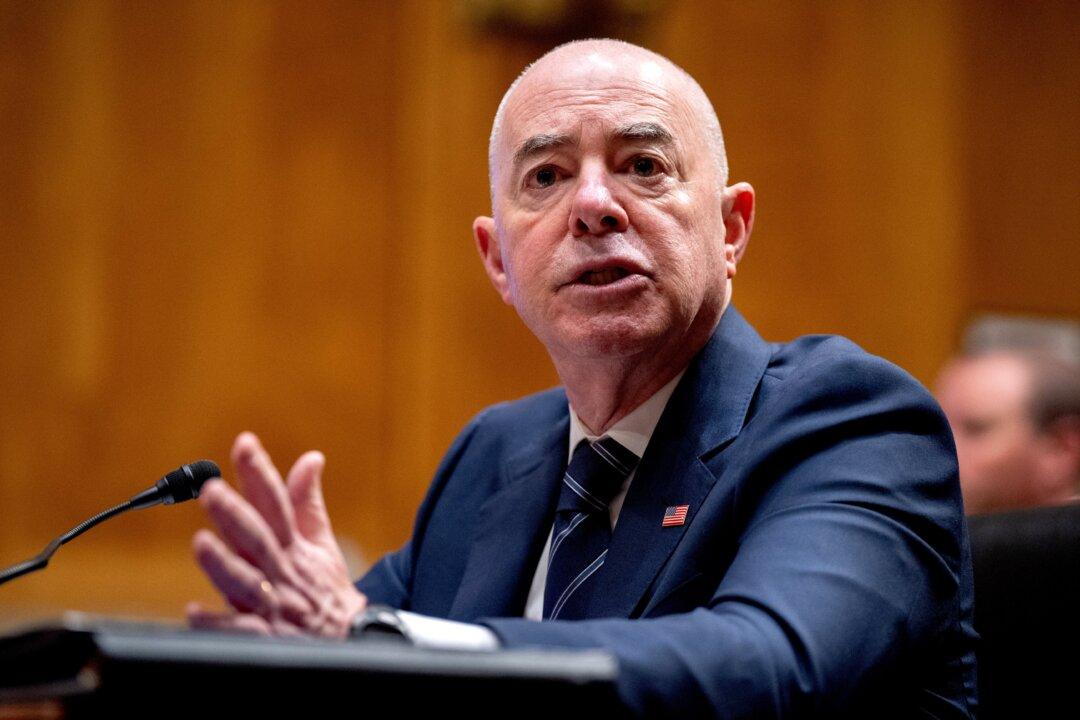Sen. Rand Paul (R-Ky.) took Homeland Security Secretary Alejandro Mayorkas to task on April 18 for the death of college student Laken Riley, whose alleged killer was released into the country on parole.
“How did the murderer of Laken Riley get into this country? And what is the statute that allowed you to do it? How could you, and how could you sleep at night, you know, having done that?” Mr. Paul asked the secretary during a Senate Homeland Security and Governmental Affairs Committee hearing.





